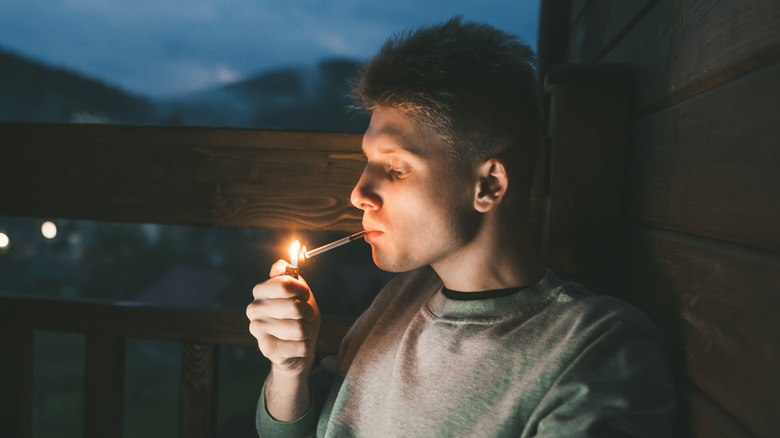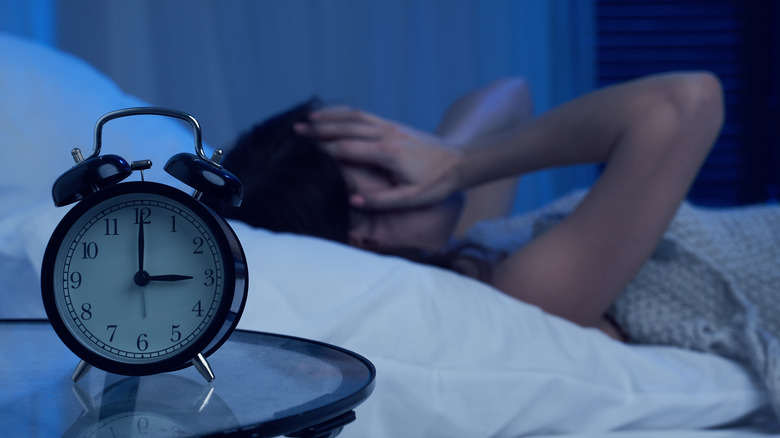When You Smoke Before Bed, This Is What Happens
According to the Centers for Disease Control and Prevention (CDC), adults need at least 7 hours of sleep each night for optimal functioning. But depending on the state, at least 28% to 44% of Americans fall short of this goal. As the National Institutes of Health (NIH) points out, this puts a person at risk of accidents, injury, and acute and chronic diseases.
Some people are unable to get enough sleep because of a busy schedule. Other people have sleep disorders that make it difficult to fall and stay asleep. While sleep disorders can't be prevented in many cases, did you know that there are certain activities and practices that can increase your risk of developing them?
Everybody knows that smoking has a surplus of negative health effects. Perhaps less commonly known is that if you smoke and you have trouble sleeping, the latter may be a direct result of the former.
How smoking interferes with your sleep
According to a 2020 study published in the journal Sleep Health, people who smoke are more likely to suffer from insomnia. This is especially true for people who smoke shortly before bed. Dr. Robert S. Rosenberg, a board-certified physician of sleep medicine, tells The Healthy that this is because "nicotine stimulates the production of the wake-promoting neurotransmitter, acetylcholine."
The Mayo Clinic adds that smoking also puts you at a three-times-higher risk of obstructive sleep apnea. This is a disorder in which the muscles in the back of your throat relax, leading your airway to close as you breathe in and stopping you from getting enough air. Your body will briefly wake you up in order to fix this. This can happen between five and 30 times per hour, which will interfere with your ability to enter deep sleep. People who smoke have more inflammation and fluid retention in their upper airway, putting them at higher risk of this potentially serious sleep disorder.
With all of this in mind, the Australian Sleep Health Foundation recommends abstaining from cigarettes for at least two hours before bed, or (ideally) quitting them altogether.


